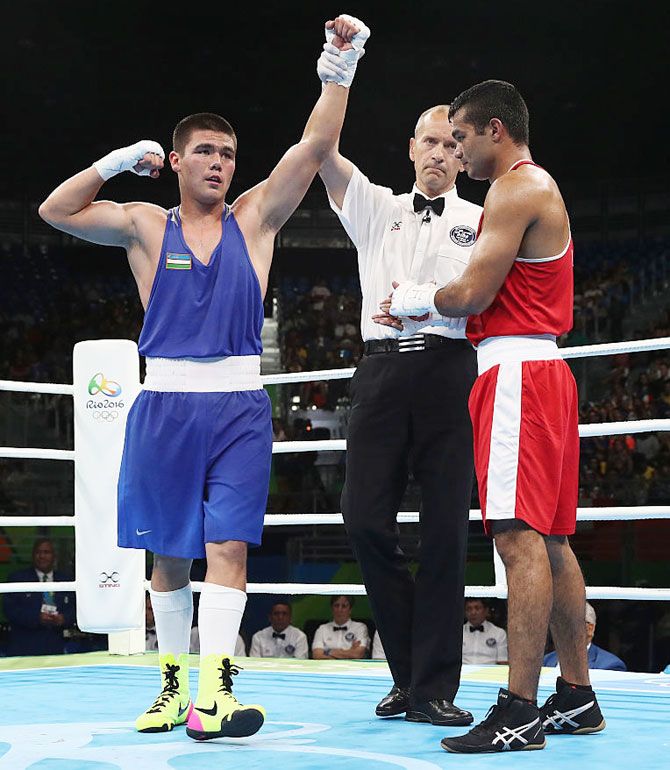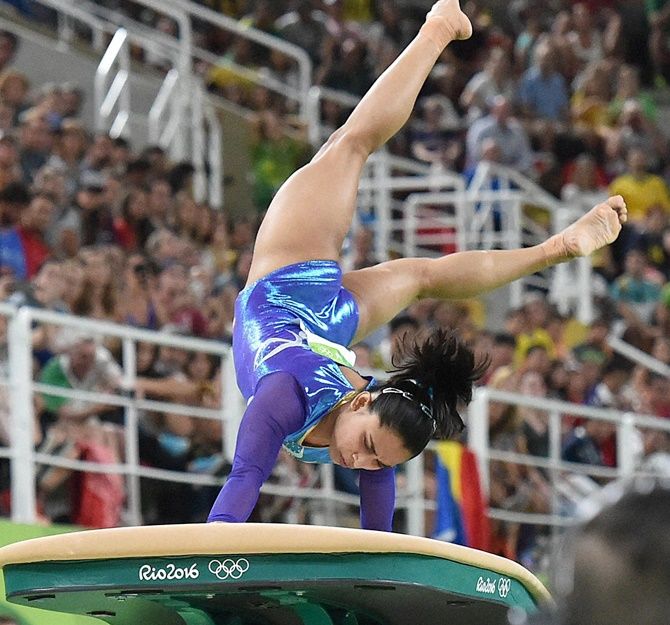'It is not the external world that is stopping Indians from winning medals. It is our culture,' says Aakar Patel.

Reading the reports of our flop performance at the Olympics one might think it has come a surprise that we are so poor at sports.
For months, the media has run stories of the Indian contingent, the largest ever sent to the Olympics by a South Asian nation. The anticipation seems to have been that we would do a good job this time.
When one wrestler's doping ban was reversed it became the day's main story. I know because I was to be on a couple of TV shows that night which were cancelled because the channels wanted to focus on this development.
So are we doing well at the Olympics?
Of course we are not, as usual.
There are two broad reasons why we do poorly. One of them is a universal reason. It has to do with the external world. I mean with facilities, encouragement and support by the government, adequate levels of nourishment, a generally healthy population and good coaching and training.
When a nation has these, it starts winning medals.
On many of these issues, things are definitely getting better in India. For example, facilities and coaching (much of which, as is happening in cricket, is outsourced to foreigners). Our facilities are not yet comparable to those in Western nations, but it is undeniable that things are improving.
While many people in India are poor and get no proper nourishment, it is also true that many people do. A huge middle class gets all the nutrition it needs and we are often told its size is equal to and exceeds the population of most countries.
Government support, in the form of money and jobs, is always announced for medal winners so we cannot blame this beyond a point.
It could rightly be said that there is much less media support for athletics and other sports than for cricket. But that is true in any country.
Swimmer Michael Phelps, the greatest Olympian in history, would go unrecognised on the streets of New York while the stars of baseball and basketball might get mobbed.
And so all of the required things which are universal, are present in India and in time these conditions will mean that we will win some more medals.

Let us turn to the second broad reason. This is a particular outlook to the outside world and to physical work.
Let me give a political illustration of what I mean.
For most mornings in his life, Thomas Jefferson, America's third president, went out and measured the atmospheric pressure on his barometer himself. George W Bush, the 43rd president, enjoys clearing up the weeds and brush on his ranch himself.
Can we imagine any of our leaders doing such things? No. Because few of us see ourselves doing it. It is not for economic reasons alone that we have a culture of servants. Physical work is not attractive to Indians. Doing it is indicative of low social status.
If we can get someone to tend to our garden and wash our car we will not do it ourselves. And there is no question of enjoying the task, even though we might enjoy owning the garden.
The crucial thing here is not enjoying the physical work. The most work the Indian will do is in the gym. If a sofa has to be lifted or shifted, someone else must do that.
I know a few American and European millionaires and they do not ask others to do their work. They do not want others to intrude into their private space at home and they enjoy doing everyday physical things. We do not and that is an observable fact.
In such a place it is expected that the young will not be single-mindedly focussed on sharpening their bodily skills.
It is not the external world that is stopping Indians from winning medals. It is our culture.
Include our culturally identical neighbours, Bangladesh and Pakistan, and we are over 1.6 billion people and about a fourth of humanity. But we are pretty much useless at the global stage in the Olympics.
And we will remain there, even if medals start eventually trickling in because of our sheer numbers, for a long time.
We will wonder what is wrong with us and discuss it over a cup of tea -- made by our servant.







 © 2025
© 2025